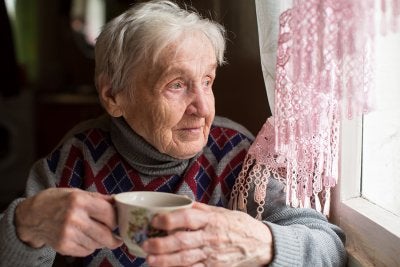-
Empowering Disabled Kids Through Dance
Kids who require assisted living services from a caregiver agency near Memphis are often defined by their disabilities, rather than by their abilities. Parents can meet many of their needs with the help of assisted living services, but disabled kids also need to feel capable, accomplished, and as independent as possible despite the need for home care assistance. Dance is a fun and empowering way to accomplish this. Special needs dance classes give disabled kids access to jazz, ballet, hip hop, and tap.
Boys and girls of all ages and all ability levels can find joy in the creative expression of dance. Whether they are wheelchair-bound or limited to leg braces, kids who dance learn that they really can do anything they put their mind to. The benefits of dance aren’t just emotional, but also physiological. Dancing is excellent exercise for kids who generally can’t run around and play quite like other kids. The movements are modifiable to suit all sorts of physical limitations, and the physical activity supports muscle strength, flexibility, and range of motion.

-
When Is Hospice the Right Choice?
If you or a loved one has a terminal illness, it’s time to consider hospice care. This model of care has an undeserved stigma attached to it, but families who do choose hospice care near Memphis discover that it offers many benefits. Terminally ill caregiving is difficult for families to handle by themselves. Hospice opens up new possibilities for gracious and dignified living toward the end of life.

When Curative Treatments Aren’t Working
Modern medicine can work miracles, but sometimes, it just isn’t enough. Gravely ill patients do have the option of considering clinical trials when they have exhausted other treatment possibilities. But sometimes, clinical trials aren’t a possibility either if the patient isn’t eligible for them or there are no appropriate clinical trials being offered nearby. When medical treatments intended to cure the disease are no longer a feasible option, hospice care is a wise decision.
When Curative Treatments Do More Harm Than Good
Some patients have the option to choose curative treatments that are intended to extend life, but are not expected to cure the disease. For example, patients with advanced lung cancer might have access to some of the newer medications intended to give them a few more months of life. But not all patients want to take this route. Some curative treatments, especially for terminal illnesses like advanced cancer, can cause complications that may reduce quality of life. If aggressive medical care isn’t the answer, then perhaps hospice care is.
When Families Need Flexible Options and Sensitive Care
Hospice care does not have to involve confinement to a hospital bed in a lonely facility. It’s actually a flexible choice that treats patients and their families with the respect and dignity they deserve. Many hospice patients remain in their own homes, surrounded by their loved ones. Every hospice patient’s care plan is customized to meet his or her needs—and the needs of the family. A care plan may include placing durable medical equipment in the home, such as oxygen therapy equipment. Contrary to popular belief, hospice patients do continue to receive medical care. They can receive any medical care that can manage symptoms and improve quality of life. This is known as palliative care, and it allows patients to live the remainder of their lives with dignity and grace.
-
Skip the Housework After Spine Surgery
Spine surgery is a major life event, and it’s important to be thoroughly prepared for the recovery process. Once you transition home after the surgery , you can expect to require in-home care, such as the services available from an assisted living provider. This is especially important if you do not have family close by to help you out around the house. After your spine surgery, you can count on an in-home caregiver in Memphis to handle meal prep and housework for you.
Listen to the nurse navigator featured in this video to learn more about recovering from spine surgery. She points out that patients can generally expect to be told not to bend or twist their torsos, or lift any objects heavier than 10 pounds. It’s also important to follow your doctor’s discharge instructions. An assisted living provider could help you out by giving you medication reminders.
-
5 Tips for Stimulating the Appetites of Alzheimer’s Patients
Caring for elderly patients can be challenging, especially when they are affected by Alzheimer’s disease. This common form of dementia often causes the loss of appetite and, subsequently, unintended weight loss. Significant weight loss can bring its own health complications. If you’re having trouble coaxing your loved one to eat regularly, an in-home caregiver in Memphis may be able to help. Reduce mealtime distractions.Sometimes, people with Alzheimer’s have trouble during mealtimes because the environment is too cluttered or noisy, or because they cannot multitask well. Turn off the TV and radio at mealtimes, and clear the table of clutter. If these steps aren’t sufficient to convince the individual to eat, try serving just one or two types of food at a time.Keep your loved one company during meals.People are social creatures and often prefer to eat in the company of others. If it isn’t possible for you to sit with your loved one during each meal, it may be time to hire an elder care provider to give your loved one the companionship and practical care he or she needs. When you are able to dine with your loved one, make eye contact and convey positivity with your facial expressions. Your loved one may be more likely to eat if you are eating, too. Some individuals may do better with quiet, pleasant conversation, while others are too distracted by talking.Make eating as easy as possible.
Reduce mealtime distractions.Sometimes, people with Alzheimer’s have trouble during mealtimes because the environment is too cluttered or noisy, or because they cannot multitask well. Turn off the TV and radio at mealtimes, and clear the table of clutter. If these steps aren’t sufficient to convince the individual to eat, try serving just one or two types of food at a time.Keep your loved one company during meals.People are social creatures and often prefer to eat in the company of others. If it isn’t possible for you to sit with your loved one during each meal, it may be time to hire an elder care provider to give your loved one the companionship and practical care he or she needs. When you are able to dine with your loved one, make eye contact and convey positivity with your facial expressions. Your loved one may be more likely to eat if you are eating, too. Some individuals may do better with quiet, pleasant conversation, while others are too distracted by talking.Make eating as easy as possible.As Alzheimer’s disease progresses, managing eating utensils becomes more difficult. An elder care provider can prepare meals that work well as finger foods. Instead of salad, serve crudité. Instead of grilled chicken breast, serve chicken strips.
Serve smaller meals and snacks frequently.
It’s not always practical to expect a person with Alzheimer’s to eat a large meal. It’s often more feasible to gently coax him or her to eat small snacks between meals. Try serving nutritional supplement drinks or soft foods, such as eggs, pudding, or smoothies.
Prepare your loved one’s favorite foods.
Nutritious, well-balanced meals are important, but sometimes, it’s better to choose your battles wisely. Preparing your loved one’s favorite meals, even if they aren’t particularly healthy, can help stimulate his or her appetite.
-
Tips for Good Nutrition Later in Life
If you’re reaching the age when you’re starting to think about assisted living, it might also be time to revisit your nutritional needs. Caregivers in Memphis note that the amount of specific nutrients a person needs can change throughout life. Your doctor can let you know if your meal plan could benefit from some adjustments. Elder care providers also stress the importance of drinking plenty of water later in life, as a person’s awareness of thirst declines with age.
Watch this featured video to learn about the six categories of essential nutrients you need in your diet. You’ll also learn about adding other nutrients such as resveratrol, carotenoids, phytosterols, and phytoestrogens to support your good health. If you’re having trouble preparing nutritious meals for yourself, an in-home care provider can help.
-
Explaining Alzheimer’s to Children in Memphis, TN
For an elder caregiver , the behavioral and personality changes associated with Alzheimer’s disease are to be expected, but for a child, they can be alarming. When a loved one has been diagnosed with Alzheimer’s disease and is receiving elder care near Memphis, it may be time to consider how to explain these changes to your children in a way that won’t frighten them. Children are remarkably resilient, but they often fear the unknown. Explaining the basics of dementia may be the most effective way to reassure your kids that the changes grandma or grandpa is experiencing are caused by a medical condition.

Find out what your child knows about the disease.
Your child might already have a vague idea of what Alzheimer’s is, depending on his or her age. Consider starting the discussion by asking your child if he or she has heard of Alzheimer’s before, and if so, what your child knows about it. This gives you an opportunity to correct misconceptions and fill in the gaps in your child’s knowledge of the disease.
Explain how Alzheimer’s affects your loved one.
Let your child know that grandma or grandpa has been receiving assisted living services because he or she has Alzheimer’s disease and needs some extra help around the house. Reassure your child that Alzheimer’s disease does not spread from one person to the next, that it progresses very slowly, and that the family still has lots of time to enjoy grandma or grandpa’s company. Point to specific examples of how Alzheimer’s has affected your loved one . You might explain that the disease is why the grandparent keeps forgetting your child’s name, for example, or sometimes talks about things that don’t exist. Reassure your child that it’s the disease that is causing these changes, not something that your child did wrong.
Encourage your child to ask questions and share feelings.
Let your child know that it’s okay to feel sad and that you feel sad, too. Tell him or her that you always welcome your child’s questions and that you’d like it if he or she would share feelings about the situation. Moving forward, encourage your child to continue to enjoy spending time with your aging loved one.
-
Finding the Strength to Say Goodbye
Death is never easy to talk about, especially when a loved one is in hospice care. Those who do find the strength to say goodbye often discover that their loved ones appreciate having a frank discussion. If you’re having trouble starting the conversation, consider talking to a counselor, spiritual leader, or hospice care provider in Memphis.

Knowing When the Time is Right
Generally, doctors hesitate to define an anticipated life expectancy for patients with terminal illnesses. It simply isn’t possible to accurately predict whether a patient has six months or six weeks to live. But hospice caregivers, who work with the dying every day, are attuned to the signs that the end of life is near. As your loved one approaches death, you’re likely to notice at least some of the following changes:
- Refusal to eat and drink
- Decrease in urine output
- Decrease in body temperature
- Significant increase in sleeping
- Agitation and restlessness
- Confusion and hallucinations
- Sounds of chest congestion
- Slow or shallow breathing
- Periods of no breathing
It’s your decision whether to wait to say goodbye until your loved one is close to death. Bear in mind that, depending on your loved one’s health condition, he or she may not be able to have a clear conversation with you toward the end of life. If you are emotionally able to do so, you may prefer to say goodbye when your loved one first enters end of life care.
Starting the Conversation
When it comes to end of life conversations, there really isn’t a great way to break the ice. Sit with your loved one, hold his or her hand, and tell your loved one that you’re there for him or her. Ask what you can do to help your loved one be more comfortable. Let your loved one know that you understand he or she is dying, and then ask if it’s a good time to talk about it. Try to avoid using euphemisms unless you think your loved one would prefer it. It’s possible that your loved one has been waiting for you to start the discussion and would rather speak frankly about it.
Avoiding Future Regrets
When planning to have the conversation, think of what you might regret not saying to your loved one after he or she is gone. He or she might live for weeks or even months after you’ve said goodbye, but there’s always the possibility that you won’t get another chance to say what you need to say.
-
Sudden Weight Loss in Aging Parents
One of the many benefits of arranging for senior care services in Memphis is that you’ll be kept in the loop about changes in your aging parents’ health . The assisted living provider can prepare nutritious meals for your parents, but he or she can also let you know if your parents seem to have a sudden decline in weight. Sudden weight loss may indicate a serious medical problem. Ask the assisted living provider to take your parents to their doctor for an evaluation.
Some of the possible causes of sudden, unintentional weight loss in seniors include thyroid disorders, liver disease, depression, and cancer. Sometimes, weight loss occurs as a result of adjustments in medication. It can also be associated with Alzheimer’s disease or other forms of dementia. Sudden weight loss can cause muscle wasting and suppressed immune function, which can lead to severe health complications for elderly patients. To reduce this risk, your parents’ doctor may suggest that the caregiver begin preparing high-calorie meals and snacks. online oyun Mostbet

-
A Quick Look at Discharge Planning
After a loved one is discharged from a hospital or long-term care facility, families need to know that there is a risk of re-admittance to the hospital, particularly when the patient is a senior citizen. Careful discharge planning can reduce this risk. Discharge planning involves identifying the patient’s post-discharge needs and connecting the patient to the necessary resources. For example, it’s a good idea for family members to contact a home health agency in Memphis before the patient is discharged. An assisted living provider can ease the transition from the hospital to the home.
When you consult an in-home caregiver, you’ll learn what to expect when your loved one returns home and you’ll discuss ways of overcoming challenges. The assisted living provider may recommend home modifications to improve safety, for instance. A caregiver’s versatility can prove invaluable for your family. He or she can provide assistance with personal care, light housekeeping, meal preparation, and transportation to follow-up medical appointments.

-
Designing an In-Home Care Plan for a Parent with Alzheimer’s
Alzheimer’s disease and other forms of dementia place a considerable burden on families. Elder care at home is usually preferred, but families often lack the time to provide 24/7 care and monitoring. Home health aides in Memphis can bridge the gap between an aging parent’s needs and a family caregiver’s capabilities. If your parent has been diagnosed with Alzheimer’s, it’s time to have a conversation with an assisted living provider.

Identify Needs
Every elderly parent with Alzheimer’s has unique needs, usually depending on the stage of Alzheimer’s they are dealing with. Before designing your parent’s in-home care plan, it’s a good idea to meet with the family doctor to discuss your parent’s specific needs . The doctor may recommend that your parent stop driving if he or she hasn’t stopped already. Other recommendations may include the following:
- Starting new medications
- Making home modifications for fall prevention
- Adding safety devices (e.g., automatic stove turn-offs)
- Wearing a medical alert button
- Receiving assistance with meal preparation and feeding
- Enjoying safe physical exercise
- Engaging in daily cognitive stimulation
Speak with Family Members
Once you have a list of all of your parent’s needs, it’s time to have a talk with other family members about arranging in-home care for your parent. Although an in-home caregiver can provide nearly all of the services your parent may require, most families will still want to be involved with the care plan in some way. Coordinate with other family members who want to provide occasional care. Your sister might take mom or dad for a weekly walk in the park, for instance, while your brother might volunteer to make a couple of meals each week. https://mostbet-games.net/hy/
Ease the Transition
Significant change isn’t easy for many people, particularly aging parents with Alzheimer’s disease. If your parent is a little unsure about the prospect of having a home health aide, it’s best to make the transition gradually if possible. Your parent may want you to be present during the first few visits. As your parent becomes increasingly comfortable with the idea of receiving professional care, the home health aide can take on more tasks without your presence.
